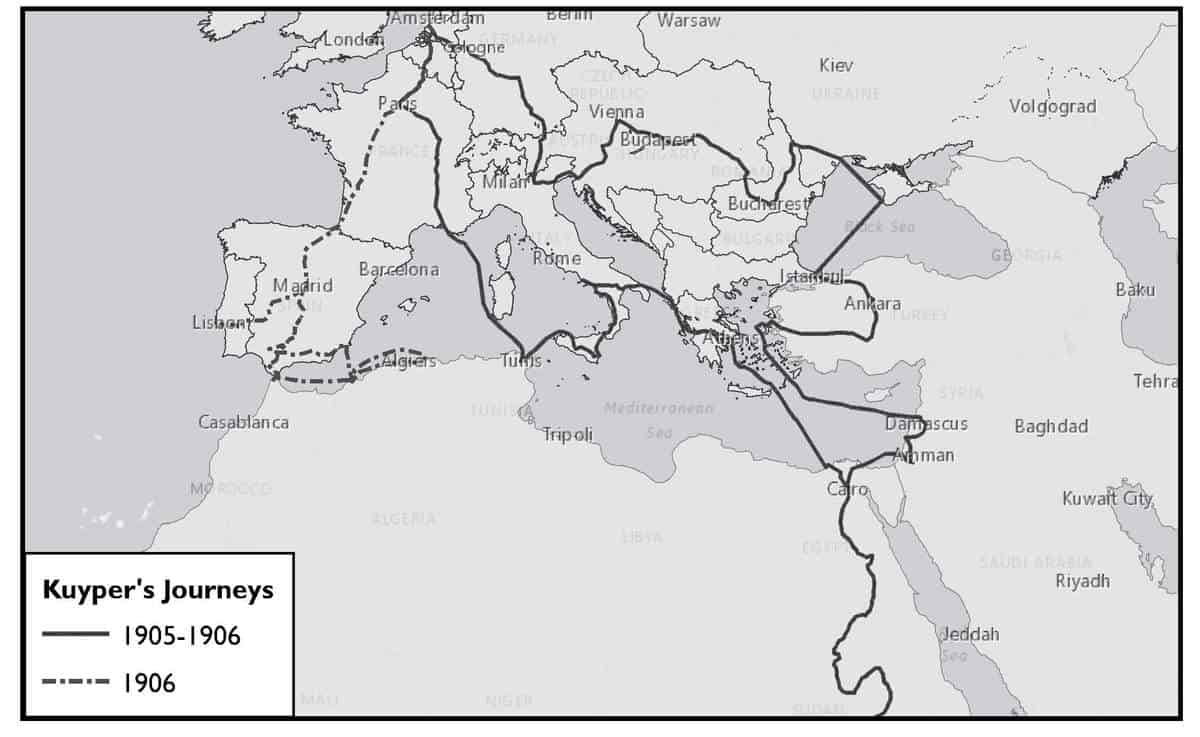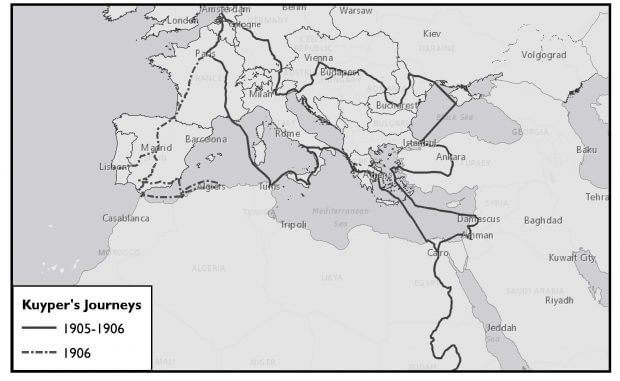In his two massive theological commentaries, Common Grace and Pro Rege, Abraham Kuyper develops a robust public theology, fully addressing the intersection of faith and culture. Too often, theology simply resides in the lofty chambers of academia, without any real connection to the life of the common man. That is why Kuyper’s encounters with Islam during his travels around the Mediterranean are so crucial for a full understanding of his public theology.
It is during these travels that his theological convictions were put to the test. With the benefit of time, we are able to clearly see these connections between his early work and his later writings. As editor James D. Bratt shows us in the introduction to On Islam, Kuyper’s experiences in the Mediterranean were deeply impactful.
While his trip came at a crucial turn in Kuyper’s career, it also called up some of his deepest theological convictions. Anyone who has read much of Kuyper and then turns to these pages will experience enough jolts of recognition to start wondering whether Kuyper was seeing Islam clearly or projecting his own ideals upon it. The answer probably lies in the resonance between the two. That raises interesting implications.
He asserted repeatedly that Islam does not segment religion off as one sphere separate from the others; rather, the faith permeates everything—politics and culture, education and the arts, domestic life and public affairs—animated by a single driving conviction. Islam honored, said Kuyper, everywhere and at all times, the sovereignty of God. Kuyper’s next massive theological commentary, the three-volume Pro Rege (1911–12), began with a rueful calculation of how many times per day, per week, per year all Muslims offered up their praise and prayers to Allah, and how far short of that mark even the most devout Christians fell.
The very presence of nuance and counterpoint in Kuyper’s presentation deserves emphasis. To him Islam has defects and virtues. It poses threats here and opportunities there. It brings to light both the merits and the defects of Christendom—and especially of Christians. It is, admirably, all of a piece in its core convictions but not all of a piece in its local articulations, and these invite—indeed, require—any outsiders, Christians included, to take historical, cultural, and political context seriously. That is a word to be heeded in our own tense and heated times.
Daniel Philpott, professor of political science at the University of Notre Dame, echoes these sentiments in his endorsement of this valuable volume:
[On Islam] is a model of engagement for our world, in which the relationship between Christianity and Islam is critical for the global future. The volume will be invaluable for the Christian engaged with Muslims but also for anyone interested in peace and productive friendship between the world’s great religions.
On Islam is now available in all formats. Discover Kuyper’s insightful reflections on the relationship between these two religions.






